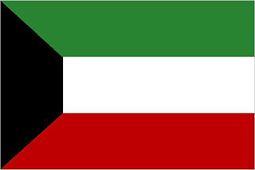
Kuwait Pledges Support for OPEC Cuts


OPEC's latest supply accord commits its 11 participating members to 3% cuts in oil production to help revive flagging prices, Platts reported.
Kuwait has been handed a 2.724 million barrels per day quota under the new deal agreed earlier this month.
"The oil market is in a better place today than it was a few years ago," said Fadhel in a statement.
Oil prices have plummeted to below $54 per barrel on Thursday from a near-term high of $86 per barrel in October, despite OPEC's agreement with Russia and other allies to cut supply by a total 1.2 million bpd.
Kuwait pumped 2.79 million bpd in November, making it OPEC's fifth-largest producer, according to an S&P Global Platts survey of shipping data, analysts and industry officials.
Fadhel, a former professor at Kuwait University, replaces Bakhit al-Rashidi, who resigned last week.
Kuwait -- which is partly governed by an elected National Assembly-- frequently shuffles its cabinet of ministers. However, changes at the oil ministry are unlikely to change strategy, with oil policy tightly controlled by the country's Supreme Petroleum Council, which is headed by the country's prime minister, Sheikh Jaber Al-Mubarak Al-Hamad Al-Sabah.
Kuwait is a founding member of OPEC and is closely aligned to Saudi Arabia and some Persian Gulf Arab states within the group.


Newmont nets $100M payment related Akyem mine sale

First Quantum scores $1B streaming deal with Royal Gold

Caterpillar sees US tariff hit of up to $1.5 billion this year

Gold price rebounds nearly 2% on US payrolls data

Copper price collapses by 20% as US excludes refined metal from tariffs

St Augustine PFS confirms ‘world-class’ potential of Kingking project with $4.2B value

B2Gold gets Mali nod to start underground mining at Fekola

Goldman told clients to go long copper a day before price plunge

Copper price posts second weekly drop after Trump’s tariff surprise

Codelco seeks restart at Chilean copper mine after collapse

US slaps tariffs on 1-kg, 100-oz gold bars: Financial Times

BHP, Vale offer $1.4 billion settlement in UK lawsuit over Brazil dam disaster, FT reports

NextSource soars on Mitsubishi Chemical offtake deal

Copper price slips as unwinding of tariff trade boosts LME stockpiles

SAIL Bhilai Steel relies on Danieli proprietary technology to expand plate mill portfolio to higher steel grades

Alba Discloses its Financial Results for the Second Quarter and H1 of 2025

Australia weighs price floor for critical minerals, boosting rare earth miners

Australia pledges $87M to rescue Trafigura’s Nyrstar smelters in critical minerals push

Fresnillo lifts gold forecast on strong first-half surge

US slaps tariffs on 1-kg, 100-oz gold bars: Financial Times

BHP, Vale offer $1.4 billion settlement in UK lawsuit over Brazil dam disaster, FT reports

NextSource soars on Mitsubishi Chemical offtake deal

Copper price slips as unwinding of tariff trade boosts LME stockpiles

SAIL Bhilai Steel relies on Danieli proprietary technology to expand plate mill portfolio to higher steel grades

Alba Discloses its Financial Results for the Second Quarter and H1 of 2025

Australia weighs price floor for critical minerals, boosting rare earth miners

Australia pledges $87M to rescue Trafigura’s Nyrstar smelters in critical minerals push

Fresnillo lifts gold forecast on strong first-half surge














